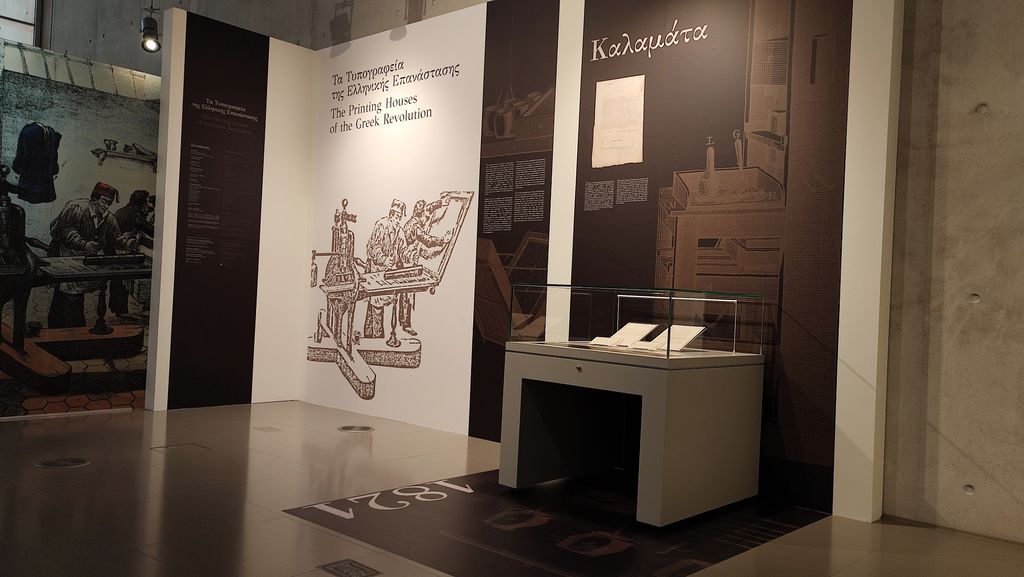In June 1821, Dimitrios Ypsilantis went to Hydra, and about that time the equipment for the first printing house of the Revolution also arrived in Greece. That first printing press in Kalamata, housed in a mosque, started to operate very soon, in July of that year. Konstantinos Tompras, an experienced printer from Kydonies, in cooperation with Anastasios Nikolaidis, was charged with its operation. One of the first works to be published was the newspaper titled Σάλπιγξ Ἑλληνικὴ [Greek Trumpet] edited by Theoklitos Farmakidis. Yet, the printing house in Kalamata was short-lived. After the fall of Tripoli on 23 September, K. Tompras transferred the printing house there and then to Argos.
1821
x
U
W
x
U
W
x
U
W
x
U
W




